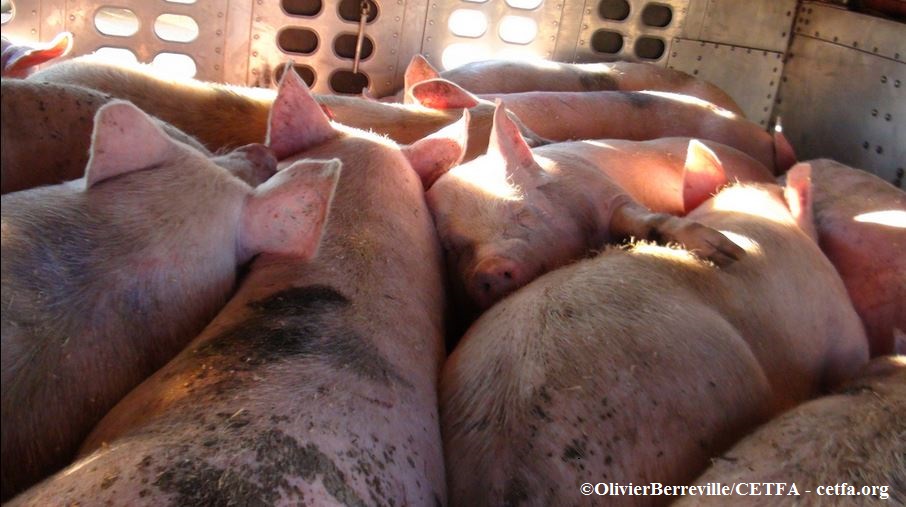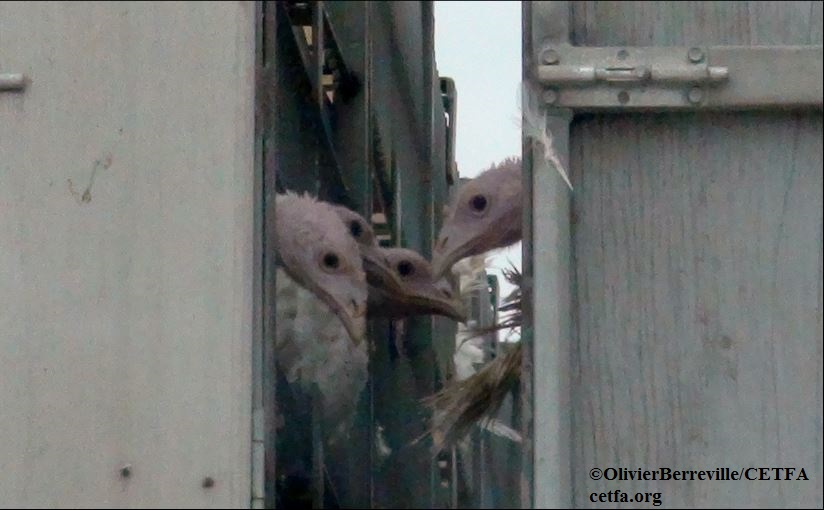Background:
Canadian legislation allows pigs, chickens, horses and other monogastric animals to be transported for up to 36 hours with no food, water or rest. Cattle, sheep, goats and other ruminants may be transported for up to 52 hours without food, water or rest.
Transport regulations allow the use of electric prods, stating only that they must not be applied to the face or genitals. Untrained livestock drivers routinely rely on the electric prods and regularly apply them to the faces and genitals of animals. Such violations regularly go unpunished.
“Humane” transport legislation also allows ill, injured and pregnant animals to be transported if the ride is not expected to cause “undue suffering”. Our inspectors routinely document badly injured animals on transport.
Crates and trailers are also routinely overcrowded – by as many as 4,000 birds!
CETFA has extensively documented transport conditions for farmed animals, as well as loading and unloading procedures. Watch for example: Transport of slaughter-bound pigs in Canada,Laming mastitis cows being loaded, Loading of turkeys for Granny’s in MB, Overuse of electric prods on pigs Part I and Part II, Granny’s poultry violations update, Get cracking cruelty exposed and The need for dedicated livestock lanes at Borders.
For additional information, read CETFA’s co-authored report, The Need for Change: A Report on Canada’s Inadequate Transport of Animals Regulations and view our factsheet Cull animals suffer during long-distance transport in Canada.
CETFA is working towards:
- A decrease in the maximum length of animal transport.
- Mandatory on-board watering systems and forced ventilation systems in trailers.
- Mandatory driver training.
- A ban on the use of electric prods.
- An effective, dissuasive and proportionate sanctioning system with inspections on the roads, at borders and at slaughterhouses.




